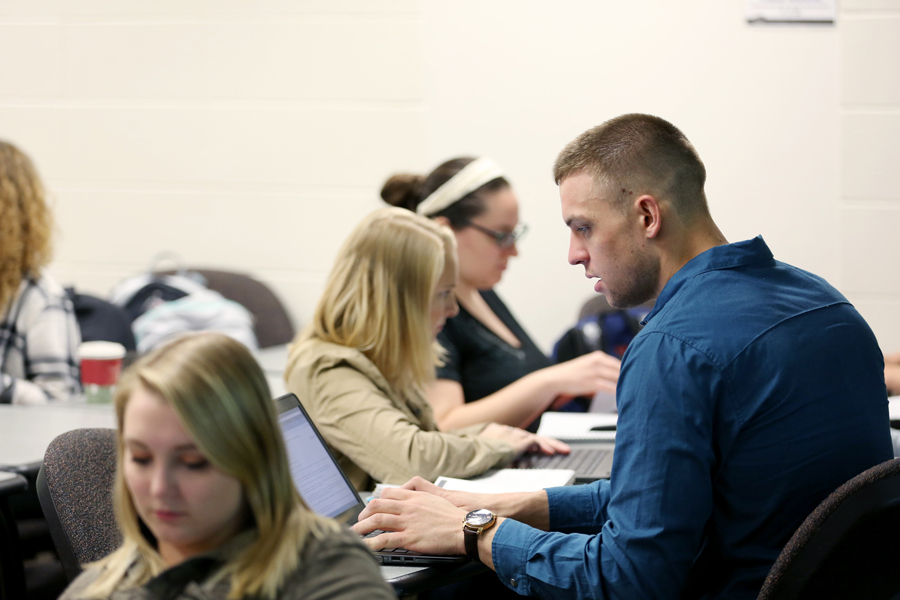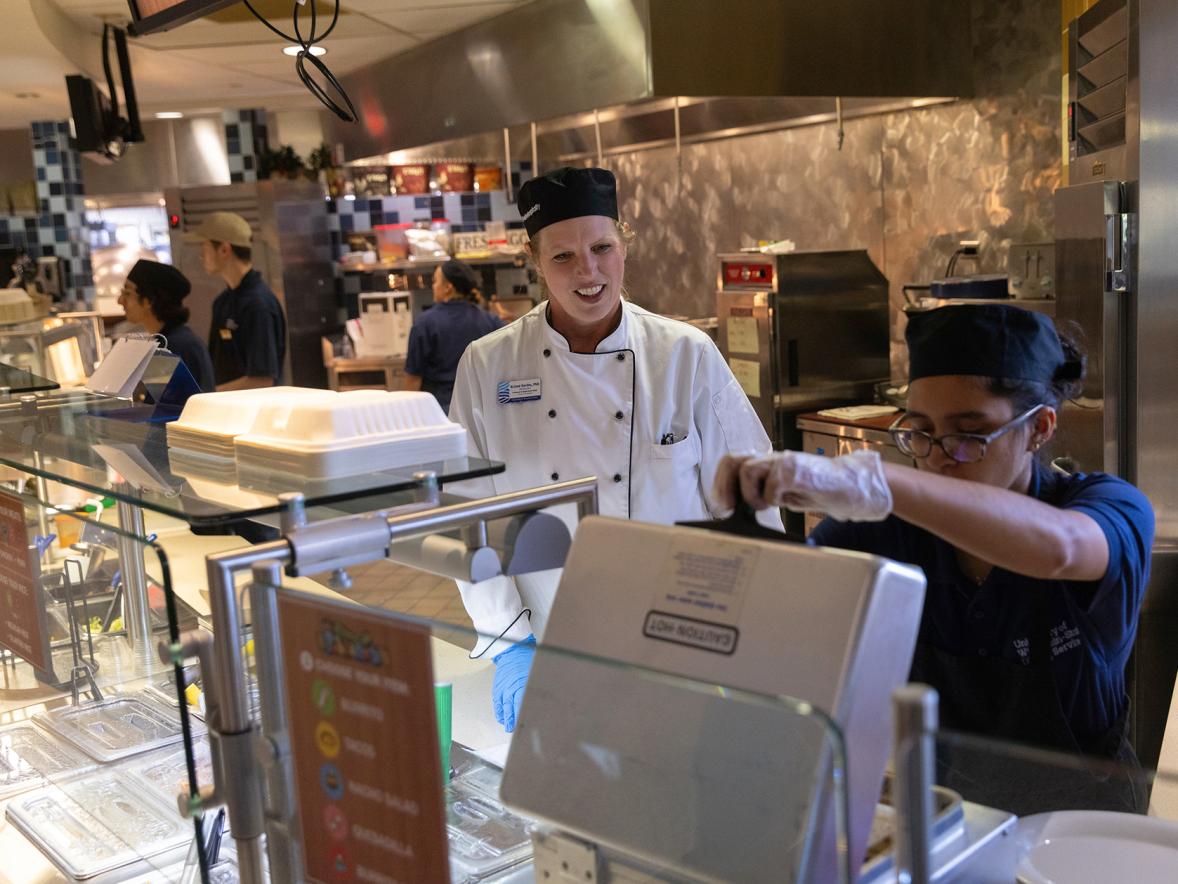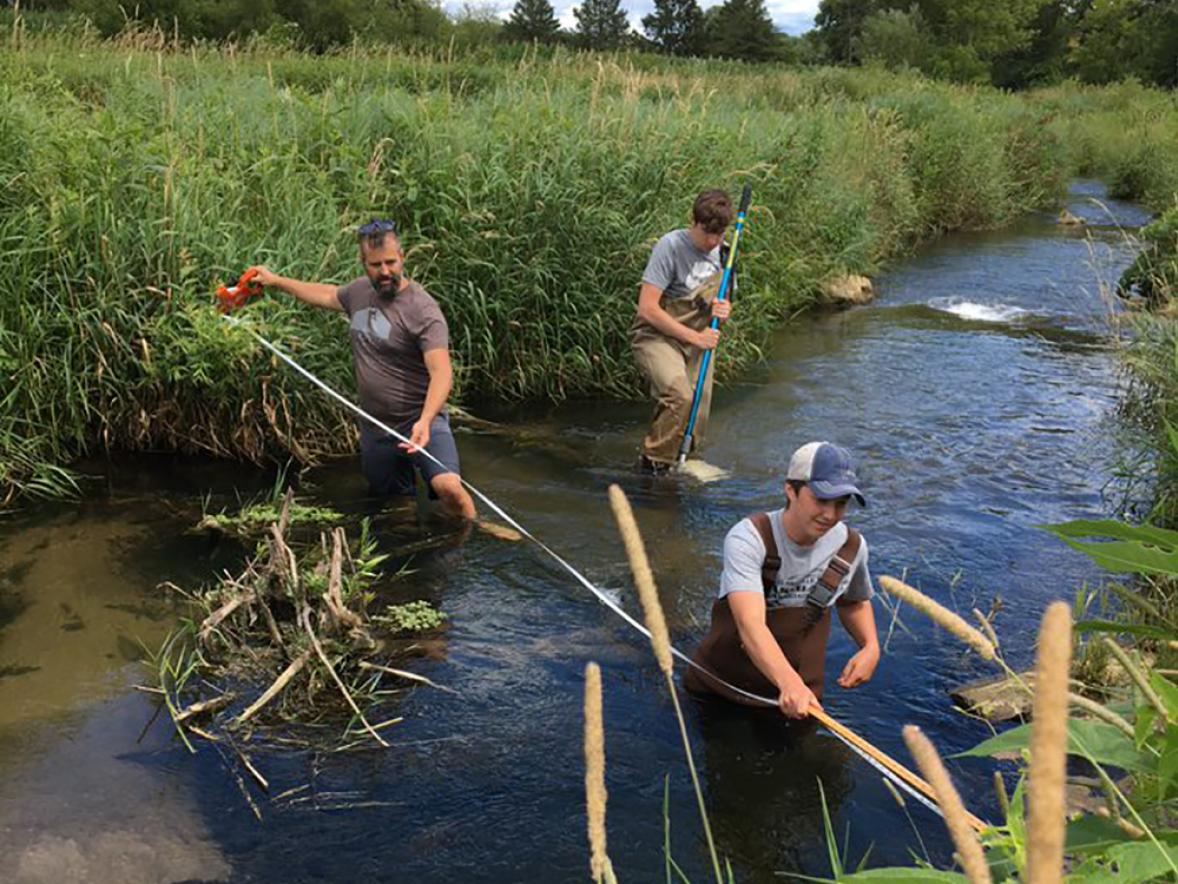As an associate professor in human development and family studies at University of Wisconsin-Stout, Amanda Barnett’s career is built around improving lives.
Her teaching and research interests include family resource management, family gerontology, intergenerational relationships and late-life family decision-making.
She also is especially drawn to the issue of caregiving for the elderly. “I saw my mom as a caregiver to my grandma. It was watching the process, the challenges and joys, that made me realize I wanted to understand more about later life and how to help families in the transition — help elders have a dignified and good experience as well as caregivers,” Barnett said.
With her passion for the issue, Barnett was pleased when Congress passed the RAISE Family Caregivers’ Act. It was signed into law Jan. 22 by President Trump. RAISE stands for recognize, assist, include, support and engage.
The law, which had bipartisan support in Congress and the backing of AARP, requires Health and Human Services to develop a national plan to support family caregivers, including an advisory body to recommend a course of action within 18 months.
“The RAISE Family Caregivers’ Act is a much-needed federal response to support the important and usually unpaid care that family caregivers provide for their loved ones every day,” Barnett said.
“Research shows us that caregivers who are supported can provide care longer and delay the need for institutional care, which is costly to families and society. Overall, this is a vital step in the right direction given the expected growth in our aging population and forecasted shortage of available family and formal/professional caregivers,” Barnett said.
One of the co-authors of the legislation was Sen. Tammy Baldwin of Wisconsin. The bill was backed by more than 60 aging and disability groups, along with the Alzheimer’s Association, Michael J. Fox Foundation, Paralyzed Veterans of America and Elizabeth Dole Foundation.
The law will help address a growing aspect of caregiving, eldercare. With the increase in life expectancy in the U.S. — from 70.8 in 1970 to 78.6 in 2016 — millions more people are living into old age, creating new challenges for family members of older persons.
An estimated 40 million people in the U.S. are family caregivers.

“Families need to make a lot of important and challenging decisions as family members get older,” Barnett said, citing issues such as long-term care, insurance, finances and estate planning.
“It’s not one individual – it’s the entire family system and how people can come together and make that as positive an experience as possible,” she said.
Caregiving can have joys along with challenges. “These feelings can exist together, and that’s OK,” Barnett said.
In preparing students to work in the field, Barnett and other faculty in UW-Stout’s human development and family studies program prepare students to see the elderly without biases. She teaches a class, for example, on late adulthood and recently taught another on cultural humility.
“We don’t often think of age as culture, but it is. In classes we help students understand their age biases and how they approach ageism,” Barnett said. “We work on our biases, stereotypes and assumptions so we might better meet people where they’re at.”
Her thoughts on caregiving issues were expressed recently as a guest on the “Generations” public access TV show in the Minneapolis area.
This fall a book she is co-authoring, the third edition of “Family Ties and Aging,” will be published by Sage Publications. The lead author is Ingrid Arnet Connidis, who teaches at Western University in London, Ontario, Canada.
Barnett has an undergraduate degree in psychology from UW-Eau Claire, a master’s in human development and family studies from the University of Missouri-Columbia and a Ph.D. in family social science from the University of Minnesota.
###
Photo
Human development and family studies majors work in the Family Policy class at UW-Stout.






